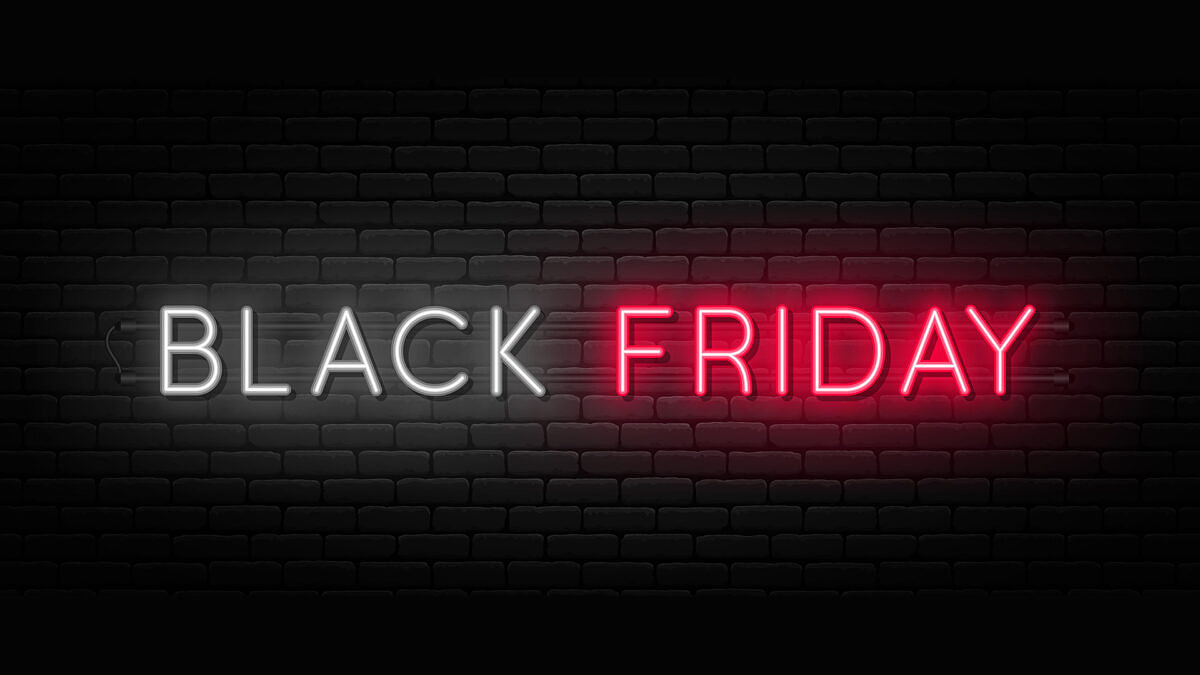Five exceptional Black Friday campaigns
Black Friday and Cyber Monday are two days that are undoubtedly in every marketer’s calendar as retailers all over the world outdo each other with bargains and insane offers. Read on for our pick of the best Black Friday strategies

Black Friday and Cyber Monday: superstars in the marketing calendar
Thanksgiving is one of the most important holidays in the U.S., with people traveling from all over to spend a long weekend with their families. The fourth Thursday of November is the official national holiday, but many also have the next day free to sleep in and lounge around – but most of all to shop to their heart’s content on what has become known as Black Friday.
Black Friday therefore traditionally kicks off the Christmas shopping period, and retailers seize the opportunity to entice customers with huge discounts. Cyber Monday, on the other hand, is a more recent phenomenon, but it generates just as many sales. In contrast to Black Friday, it carves out a USP for itself with its clear focus on tech devices. Around 20 billion dollars in sales were made in the U.S. over the two days last year.
Amazon: the Black Friday champion
Actual data proves that Amazon offers the best deals on Black Friday. Profitero, a global e-commerce analytics group, conducted a study on Black Friday 2021 and declared Amazon the clear winner. This was the fifth time in a row that Jeff Bezos’s retail monster clinched the title of “cheapest online retailer”. Amazon beat the prices of 11 out of 12 competitors by a whopping 14 percent on average. Chewy, an online pet supplies store, was the only company offering cheaper prices in some cases, but they were not enough to steal Amazon’s crown. Second place went to another retail giant: Walmart.
Apple: one of the best email campaigns of all time
Email marketing is like the Volvo of marketing campaigns. Everyone knows about it and holds it in high esteem because it almost always works, but it’s not exactly sexy compared to the sportier and more daring models on the market. However, in 2018, Apple showed what email marketing is really made of. First of all, it simply announced that something big was coming. One week before Black Friday, it then sent actual offers, promising they would remain valid for a whole four days – so until the end of Cyber Monday. Apple’s email campaign is still regarded as a stroke of genius to this day. Although no other competitor had adopted this approach, it turned out to be right on the mark.
Ikea: Buyback Friday – Black Friday campaign in reverse
In 2020, Ikea caused a global stir. Instead of succumbing to the discount frenzy, the Swedish furniture chain came up with a unique deal. Inspired by its “second chance” initiative, customers were given the opportunity to exchange their old furniture for store credit on Black Friday. With the difference that Ikea was offering to pay 20 percent more than usual. The amount was credited to gift cards, which would remain valid for three years. Wow, what a great idea – respect.
Cards Against Humanity: the troll of Black Friday
Cards Against Humanity is an incredibly popular party game that started in the U.S. Its creators seem to really enjoy thinking up absurd Black Friday offers. In 2013, they started an “anti-sale”, raised the price of the game by 5 dollars, and actually made record sales. A year later, they sold “boxes of bullshit” instead of their expansion boxes. An impressive 30,000 boxes were sent out to people. You wouldn’t believe what they contained: actual cow dung. 2017 then saw a ridiculous auction take place, with a Ford Fiesta, a medieval weapon, a portable sauna, and an Orlando Bloom cutout all up for grabs – “100% real” according to the organizers, who admitted that it was “possibly a very bad idea” though, given that everything was being offered at a 99% discount.
Patagonia: “Don’t buy this jacket”
This is another example of good marketing staying in people’s minds, even if it leads to zero sales. To mark Black Friday 2011, Patagonia placed a full-page ad in The New York Times. It showed a dark-colored parka and above it the message “DON’T BUY THIS JACKET”. The reason behind it: Patagonia didn’t want to be a part of the culture of consumption. “We should be the only retailer in the country asking people to buy less on Black Friday” was the company’s argument. And the stunt definitely paid off: Patagonia strengthened its credibility as a brand by prioritizing its ethical ideals over sales.
The bottom line: Black Friday is what you make it
Our examples show that good marketing shouldn’t always just be measured by sales. An excellent idea that is executed even more excellently always has the potential to succeed. What’s often needed is not only expertise, but also courage.





